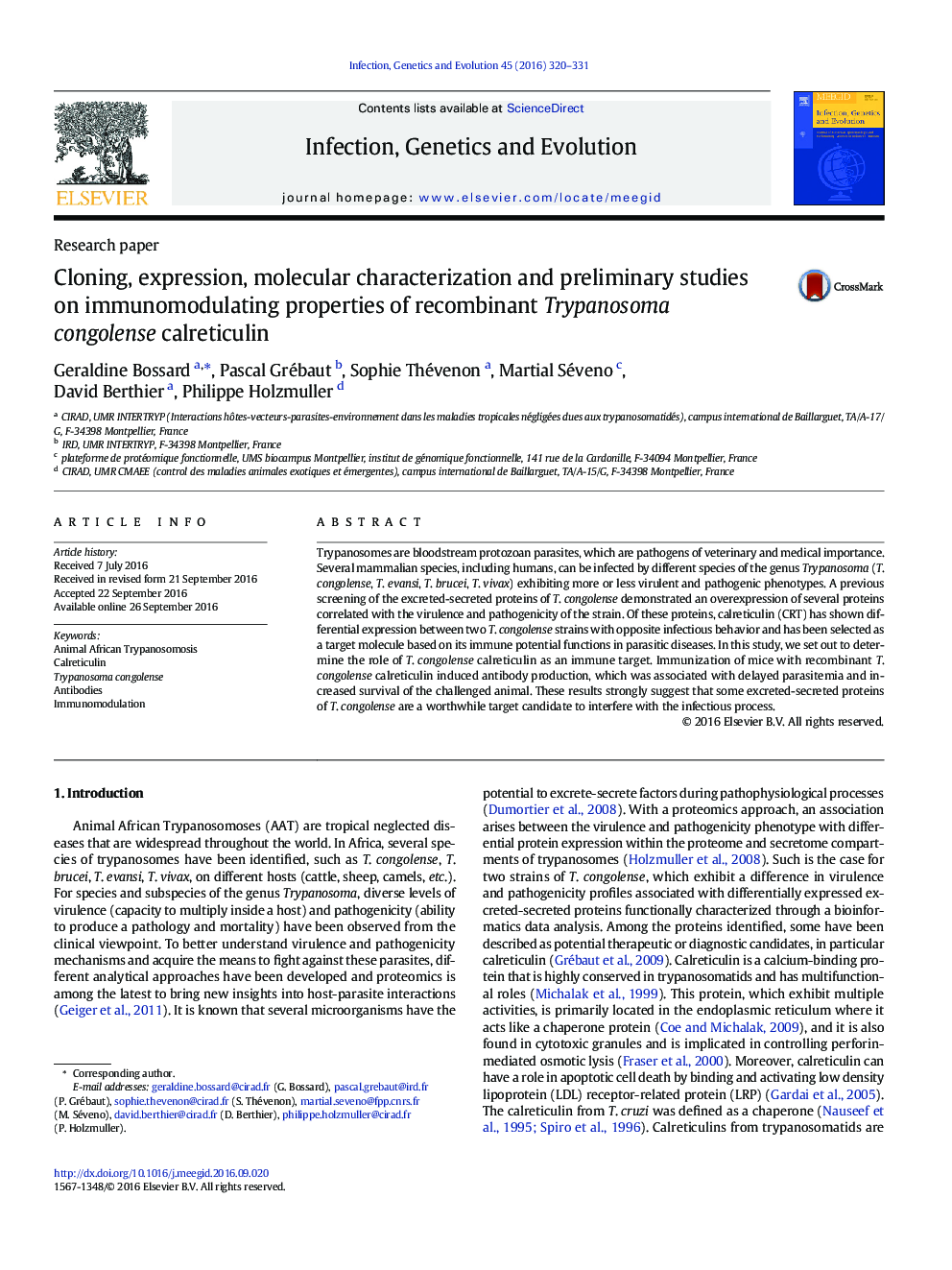| Article ID | Journal | Published Year | Pages | File Type |
|---|---|---|---|---|
| 8647110 | Infection, Genetics and Evolution | 2016 | 12 Pages |
Abstract
Trypanosomes are bloodstream protozoan parasites, which are pathogens of veterinary and medical importance. Several mammalian species, including humans, can be infected by different species of the genus Trypanosoma (T. congolense, T. evansi, T. brucei, T. vivax) exhibiting more or less virulent and pathogenic phenotypes. A previous screening of the excreted-secreted proteins of T. congolense demonstrated an overexpression of several proteins correlated with the virulence and pathogenicity of the strain. Of these proteins, calreticulin (CRT) has shown differential expression between two T. congolense strains with opposite infectious behavior and has been selected as a target molecule based on its immune potential functions in parasitic diseases. In this study, we set out to determine the role of T. congolense calreticulin as an immune target. Immunization of mice with recombinant T. congolense calreticulin induced antibody production, which was associated with delayed parasitemia and increased survival of the challenged animal. These results strongly suggest that some excreted-secreted proteins of T. congolense are a worthwhile target candidate to interfere with the infectious process.
Related Topics
Life Sciences
Agricultural and Biological Sciences
Ecology, Evolution, Behavior and Systematics
Authors
Geraldine Bossard, Pascal Grébaut, Sophie Thévenon, Martial Séveno, David Berthier, Philippe Holzmuller,
